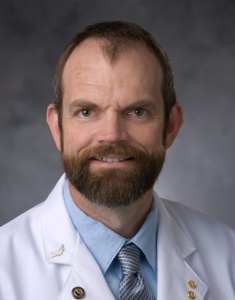
Podcast: Play in new window | Download


Podcast: Play in new window | Download


Podcast: Play in new window | Download
This week we sit down with Dr. John Warner, an Emeritus professor of Pediatrics at the Imperial College of London in the United Kingdom and also at the University of Cape Town in South Africa. We discuss his recent paper entitled: Strategies and Future Opportunities for the Prevention, Diagnosis, and Management of Cow Milk Allergy. Dr. Warner completed his undergraduate medical training in the School of Medicine, University of Sheffield and his initial pediatric experience was at the Children”s Hospital, Sheffield in the United Kingdom. He moved to London as Professor of Pediatrics and Head of Department at Imperial College St Mary’s hospital campus. He is also Hon Professor of Pediatrics in the University of Cape Town.
In 2008 he became Director of Research for the Women and Children’s Clinical Programme Group, Imperial College Healthcare NHS Trust (ICHT). He was the lead for pediatrics in both the Biomedical Research Centre in ICHT and the NW London CLAHRC (Collaboration for Applied Health Research and Care) and was President of the Academic Pediatrics Association.
Professor Warner’s research has focused on the early life origins of asthma and related allergic and respiratory disorders. He has published over 500 papers in scientific journals on these topics. He was Editor in Chief of the journal Paediatric Allergy and Immunology from 1997-2010 and chairman of the paediatric section of the British Society for Allergy and Clinical Immunology for 5 years until 2010. He was also a member of the Speciality and Training committee of the World Allergy Organisation and a past Trustee of the charity known as The Anaphylaxis Campaign.
He was a member of the Advisory Committee for Novel Foods and Processes of the Food Standards Agency for 12 years until 2012 and was recognised for his work in food allergy research by the award of an OBE in 2013.
Please enjoy my conversation with Professor Warner,
Dr. M


Podcast: Play in new window | Download
Dr. Tracy Shafizadeh is a nutritional scientist, speaker, and author with over 15 years of experience in scientific communications and life science research. Prior to serving as the Director of Scientific Communications at Evolve BioSystems, she led both product development and research services at various start-up life science companies, including Lipomics Technologies, Tethys Bioscience and Metabolon, Inc. Dr. Shafizadeh received her PhD in nutritional biology from UC Davis, studying intestinal development and folate metabolism in newborns.
Today, we spend the hour discussing the maternal and infant microbiome with respect to maternal breastmilk, human milk sugars and childhood outcome. Evolve Biosystems has produced a probiotic with excellent science to help guide us in new therapeutic discovery. We head to the beginnings of disease onset when the infant is only starting to take his or her first breaths.
I hope that you enjoy my conversation with Dr. Tracy Shafizadeh,
Dr. M


Podcast: Play in new window | Download
Dr. William Parker, Associate Professor of Surgery and Global Health at Duke University, will discuss the biome depletion theory and how our cleanliness is disrupting normal immune function. These processes can have profound downstream effects on maternal and child health. From the Duke Medical School: What is widely known as the “hygiene hypothesis” is more appropriately described as the biota alteration or biome depletion theory: Changes in symbiont composition in the ecosystem of the human body in Western culture has led to immune dysfunction and subsequent disease. We are working on several aspects of this theory. Our earlier studies probe the immunological differences between laboratory-raised and wild-raised animals as a means of assessing differences between humans with and without Western culture, respectively. Other studies probe the role of biome enrichment, in particular the addition of helminths, in the treatment of disease. Studies are ongoing in both humans and in animals, with particular attention to the role of biome depletion in cognitive dysfunction.
We discuss the future of human health with a specific focus on our macrobiome friends, parasites, with whom we have co evolved. They are now missing and we are not better off because of it.
Please enjoy my conversation with Dr. William Parker,
Dr. M


